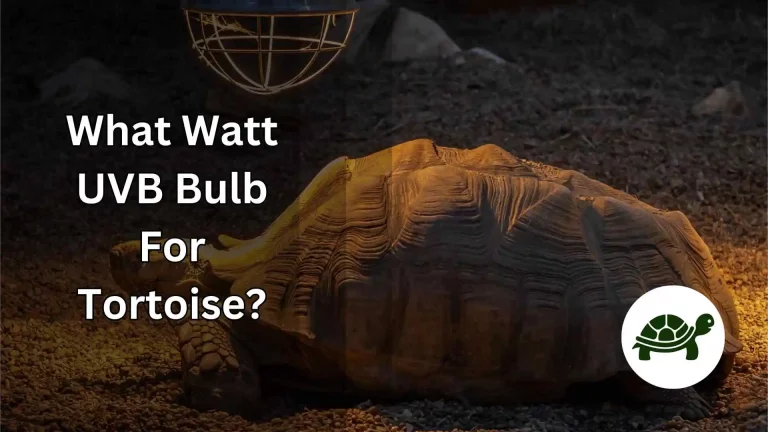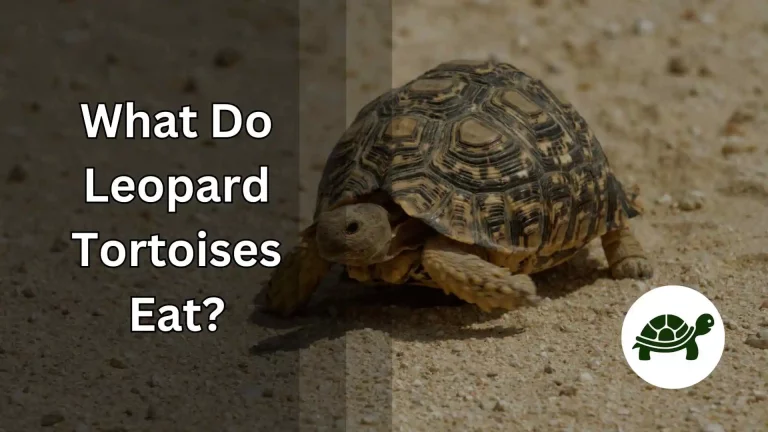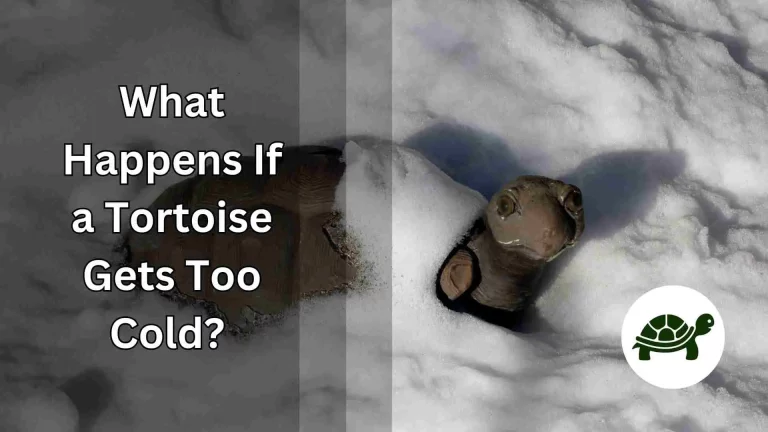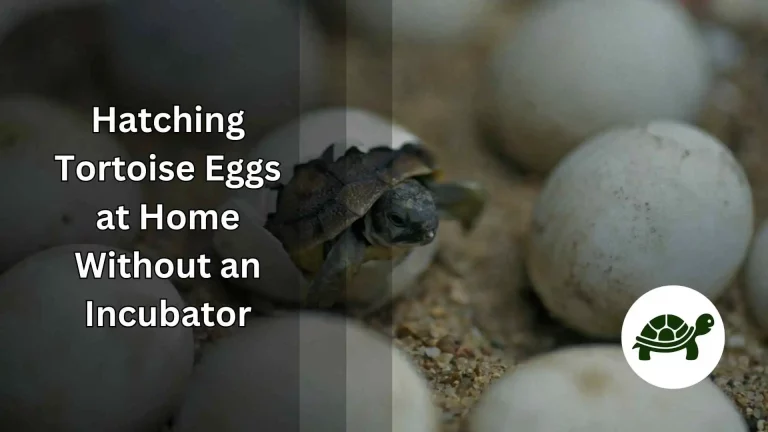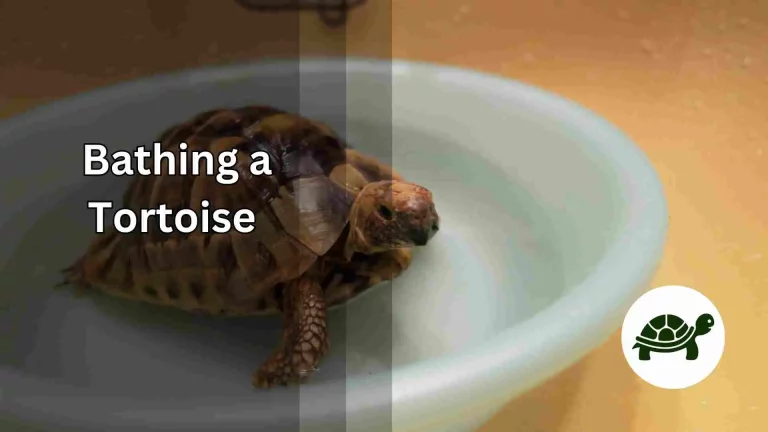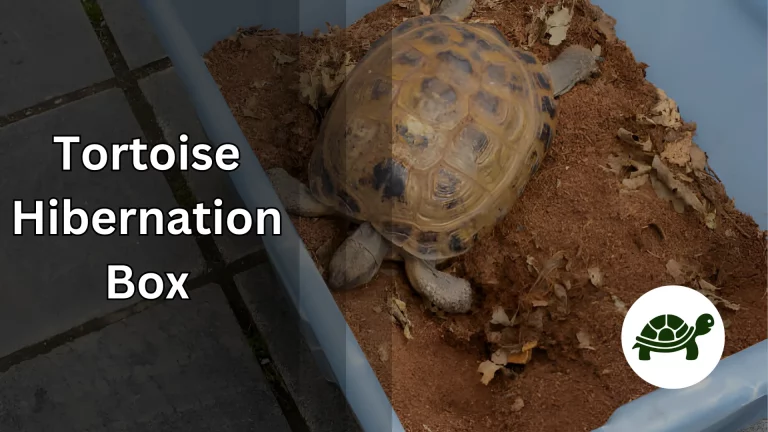Healthy Tortoise Poop – All You Need to Know
Every tortoise parent knows that the well-being of our shelled companions is a priority. But did you know that one of the indicators of a healthy tortoise is its poop? Yes, you read that right! Observing your tortoise’s fecal matter might not be a glamorous task, but it is a crucial one. Understanding the quality and consistency of your tortoise’s poop can provide valuable insights into its digestive health and overall well-being. This blog post delves into the fascinating (and important) topic of healthy tortoise poop to equip you with the knowledge you need to ensure your tortoise remains in tip-top condition.
In the following sections, we will unravel the mystery behind a tortoise’s digestive system, explain what a healthy poop looks like, and discuss common poop problems and their solutions. Ensuring a balanced diet and monitoring the health of your tortoise are essential steps towards preventing potential health issues, and yes, that includes taking a good look at what’s left behind after nature calls!
So, are you ready to become a tortoise poop detective? Aiding in the identification of healthy tortoise poop and understanding the implications of any inconsistencies can significantly contribute to the longevity and happiness of your tortoise. As the saying goes, knowledge is power, and in this case, it’s the power to provide the best care for your beloved pet. Scroll on to discover the scoop on healthy tortoise poop and embark on a journey towards becoming a more informed and proactive tortoise parent.
The Basics of Tortoise Digestion
The digestive system of a tortoise is a marvel of nature, efficiently designed to break down a variety of foods they encounter in the wild. Understanding the basics of tortoise digestion is the first step towards ensuring a healthy, happy life for your shelled companion. It’s a fascinating journey from mouth to, well, poop, and it all starts with what your tortoise consumes.
A tortoise’s diet primarily comprises leafy greens, vegetables, and fruits, with the occasional protein source like insects or worms. The process of digestion begins in the mouth, where food is broken down into smaller pieces before it travels down to the stomach and then onto the intestines. Here, essential nutrients are absorbed, and waste products are formed, eventually ending up as the poop we see. The health of this entire process is mirrored in the quality of tortoise poop. A balanced diet, rich in fiber and calcium, promotes smooth digestion and results in healthy, well-formed poop. On the flip side, a poor diet can lead to various digestive issues, reflected in irregular or unhealthy poop.
The environment also plays a significant role in tortoise digestion. A well-maintained habitat with the right temperature and humidity levels facilitates proper digestion and metabolic functions. A tortoise that’s comfortable in its environment is more likely to have a healthy appetite and, subsequently, healthy digestion leading to healthy poop.
As we dive deeper into the subject of healthy tortoise poop, understanding the basics of tortoise digestion and the factors affecting it sets the stage for a more comprehensive understanding of your tortoise’s health. So, the next time you notice your tortoise munching away, remember, a well-functioning digestive system is the first step towards achieving that coveted healthy tortoise poop!
What Healthy Tortoise Poop Looks Like
At first glance, analyzing tortoise poop might not seem like a riveting activity. However, being knowledgeable about what healthy tortoise poop looks like is a crucial aspect of responsible pet ownership. Healthy poop is a strong indicator of a balanced diet and a well-functioning digestive system. So, let’s get down to the nitty-gritty and understand what a healthy evacuation should look like for your hard-shelled companion.
A healthy tortoise poop is generally firm, well-formed, and dark in color. The color can range from dark brown to greenish, depending on the diet of your tortoise. Consistency is key; it shouldn’t be too hard or too soft, but should hold its shape when picked up. The poop may also have a white, chalky part which is urates – a normal waste product of protein metabolism. It’s essential to observe and ensure the urates are not hard or gritty as it could be a sign of dehydration. Frequency of pooping can vary based on diet, hydration, and individual tortoise metabolism, but establishing a baseline for your pet will help you detect any unusual patterns early on.
Photographs or illustrations can be quite handy when it comes to identifying healthy poop. Consider taking pictures over time to create a reference gallery for personal use or to share with other tortoise parents online, fostering a community of well-informed, responsible pet owners. Understanding the appearance of healthy tortoise poop and recognizing deviations from the norm can act as a first line of defense in spotting potential health issues. Monitoring your tortoise’s poop is an easy yet effective way to keep a pulse on their health, and ensures you’re providing the best care for your shelled friend. So, grab a magnifying glass and become the Sherlock of the tortoise poop world!
Common Poop Problems and What They Indicate
Observing your tortoise’s poop can be akin to reading tea leaves, each variation in color, consistency, or frequency may signal something about your tortoise’s health. While it might seem quirky, becoming familiar with common poop problems and understanding what they indicate is essential for ensuring the wellbeing of your tortoise. Let’s dive into some typical issues you might encounter and what they could signify.
Diarrhea:
Diarrhea in tortoises could be a sign of dietary issues, infections, or even parasitic infestations. If the poop is loose or watery, it’s a red flag that something’s amiss. It’s important to review your tortoise’s diet and consult with a veterinarian if the problem persists.
Constipation:
A tortoise might experience constipation due to dehydration, lack of dietary fiber, or an inadequate living environment. If your tortoise seems to be struggling or if the poop appears hard and dry, it might be time to evaluate and adjust the diet and habitat conditions. Ensuring your tortoise has enough water and a well-balanced diet can often alleviate constipation.
Parasites:
Worms or other parasites can occasionally take up residence in your tortoise’s digestive system. If you notice anything unusual like worms in the poop or if your tortoise seems lethargic, a vet visit is in order. A fecal exam can help identify any parasitic invaders.
Odd Colors or Blood:
Seeing blood or unusual colors in your tortoise’s poop can be alarming. Variations in color might be due to dietary changes, but blood or drastically altered colors warrant immediate veterinary attention.
Each of these issues reflects the importance of maintaining a balanced diet, proper hydration, and a suitable living environment for your tortoise. Monitoring the poop of your shelled companion isn’t glamorous, but it’s a straightforward way to keep tabs on their health. Remember, when in doubt, it’s always best to consult with a veterinarian who specializes in reptiles. Your tortoise’s poop is a tell-tale sign of its internal health, so never underestimate the value of inspecting the unexpected!
Factors Influencing Tortoise Poop Health
Diving into the world of tortoise poop health, you’ll soon realize that various factors contribute to the form and frequency of your tortoise’s droppings. Much like humans, the health of a tortoise’s digestive system is impacted by its diet, hydration, and environment. Mastering these factors can lead to better poop health, acting as a gauge for your tortoise’s overall wellness. Let’s explore these influencing factors further:
Diet:
A balanced diet is the cornerstone of healthy tortoise poop. Providing a variety of leafy greens, vegetables, and occasional fruits is essential for keeping their digestive system functioning smoothly. The fiber content in greens aids in digestion and contributes to well-formed poop. It’s wise to consult with a vet to design a balanced diet plan for your tortoise, ensuring they receive all the necessary nutrients for optimal health.
Hydration:
Water plays a crucial role in digestion. A well-hydrated tortoise is more likely to have a healthy digestive system, which in turn, reflects in the quality of their poop. Ensure your tortoise has access to fresh water daily, and consider soaking them in shallow water weekly to promote hydration.
Environment:
The environment, including temperature and humidity levels, significantly impacts a tortoise’s digestive health. A comfortable, stress-free environment promotes regular eating and pooping habits. Ensure your tortoise habitat mimics their natural environment as closely as possible, with appropriate heating and humidity to aid in digestion.
Being attentive to these factors can significantly improve your tortoise’s poop health and, by extension, their overall wellbeing. It’s a journey of observation, adaptation, and consultation with vet professionals when necessary. By becoming well-versed in the factors influencing tortoise poop health, you’ll not only become a more informed tortoise parent but also ensure your shelled companion leads a happy and healthy life. So, venture forth into the fascinating realm of tortoise poop health with a keen eye and a willingness to learn!
How to Maintain or Improve Tortoise Poop Health
Achieving and maintaining a healthy poop routine for your tortoise is not as daunting as it might seem. It predominantly hinges on a balanced diet, proper hydration, and an optimal living environment. As tortoise parents, our goal is to recreate a natural, stress-free habitat for our shelled companions while ensuring they get the right nutrition. Here are some insightful tips on how you can maintain or improve your tortoise’s poop health:
Balanced Diet:
Balanced Diet:
Dandelion Leaves:

Dandelion leaves are a great source of fiber, which is essential for promoting smooth digestion and preventing constipation in tortoises. Additionally, they provide a good amount of vitamins and minerals vital for your tortoise’s overall health.
Kale:

Known for its nutrient-density, kale supplies your tortoise with necessary vitamins A, C, and K along with crucial minerals like calcium and iron, all contributing to a robust digestive system and healthy poop.
Carrots:

Carrots offer a moderate amount of fiber and are an excellent source of vitamin A which is beneficial for your tortoise’s vision alongside digestion.
Bell Peppers:
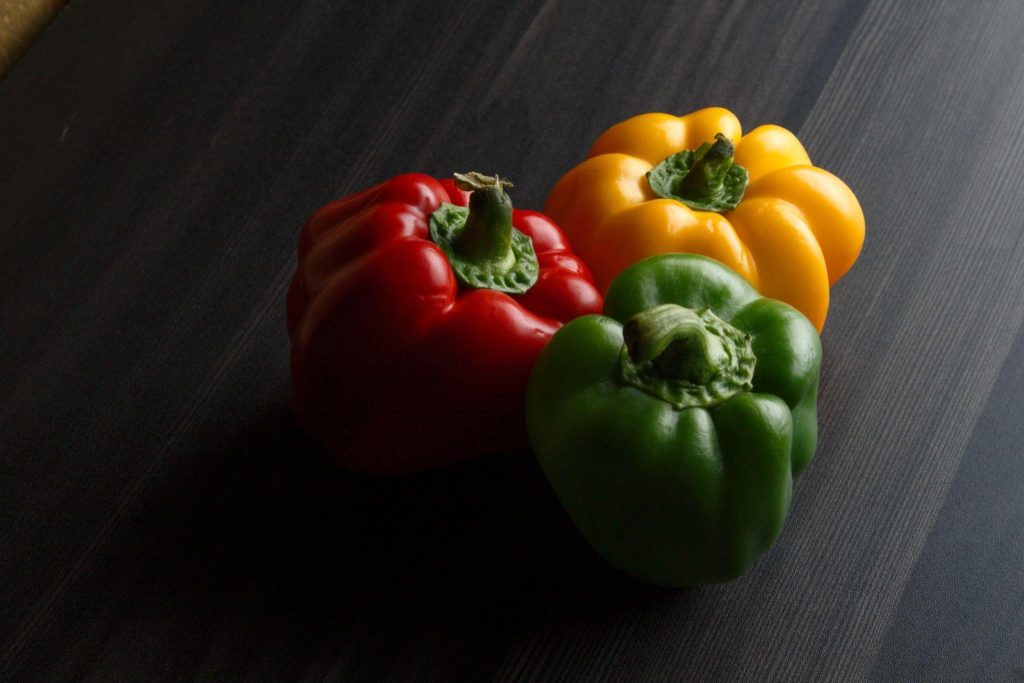
While a bit lower in fiber, bell peppers are a good source of vitamins and can add variety to your tortoise’s diet ensuring they receive a spectrum of nutrients.
Collard Greens:

Similar to kale, collard greens are nutritious and fiber-rich. They contribute to the dietary bulk, facilitating easier passage of feces.
Consult with a vet to tailor a diet plan suited to your tortoise’s specific needs, ensuring a proper balance and variety in their dietary regimen.
Regular Hydration:

Ensure your tortoise has access to fresh water daily. A shallow water dish in their enclosure will do the trick. Additionally, soaking your tortoise in lukewarm water for about 15-30 minutes weekly can help keep them hydrated, further aiding in smooth digestion and healthy poop formation.
Optimal Environment:
Creating a habitat that mimics your tortoise’s natural environment is key. Maintain the right temperature and humidity levels in their enclosure to promote proper digestion. An environment that’s too cold can slow down their metabolism, leading to constipation and other digestive issues.
Exercise:
Encourage your tortoise to move around and explore. Regular exercise aids in digestion and helps prevent constipation. Creating an engaging environment with safe obstacles and hiding spots can promote physical activity and mental stimulation.
Regular Monitoring and Veterinary Check-ups:

Keep a close eye on your tortoise’s poop and take note of any changes in color, consistency, or frequency. Regular vet check-ups can help catch and address any potential health issues early on.
Armed with these tips, you’re well on your way to ensuring your tortoise has a healthy digestive system reflected in their poop. Remember, consistency is key, and making small adjustments to their diet, hydration, and environment can have a significant positive impact on their poop health. As you venture down this road, you’ll not only become a poop health guru but also a more attuned and proactive tortoise parent!
Frequently Asked Questions (FAQs)
In the quest for ensuring healthy tortoise poop, numerous questions may arise. Here we’ve compiled a list of common queries along with their answers to aid you on this journey. Knowledge is the key to providing the best care for your shelled companion, so let’s tackle some of your burning questions:
1. What should normal tortoise poop look like?
Normal tortoise poop should be firm, well-formed, and dark in color, ranging from dark brown to greenish depending on the diet. It may also have a white, chalky part known as urates, which is a normal waste product of protein metabolism.
2. How often should a tortoise poop?
The frequency of pooping can vary based on diet, hydration, and individual tortoise metabolism. There isn’t a one-size-fits-all answer, but establishing a baseline for your pet will help you detect any unusual patterns. Observing your tortoise and consulting with a vet can provide a more precise understanding.
3. What can cause diarrhea or constipation in tortoises?
Diarrhea can be caused by dietary issues, infections, or parasitic infestations, while constipation may result from dehydration, lack of dietary fiber, or an inadequate living environment. Adjusting the diet and habitat conditions can often alleviate these issues.
4. How can I keep my tortoise well-hydrated to promote healthy digestion?
Ensure your tortoise has access to fresh water daily and consider soaking them in shallow water weekly. This helps in keeping them hydrated, promoting smoother digestion and better poop health.
5. When should I consult a veterinarian about my tortoise’s poop?
If you notice significant changes in the color, consistency, or frequency of your tortoise’s poop, or if you find blood, worms, or other concerning signs, it’s time to consult with a veterinarian. Regular vet check-ups are also advisable to keep tabs on your tortoise’s overall health.
Navigating the world of tortoise poop health might seem peculiar initially, but remember, it’s a significant aspect of pet care. Keep these FAQs handy as you hone your observational skills and work towards ensuring a happy and healthy life for your tortoise!
Conclusion
By staying vigilant about your tortoise’s poop health, you not only become a more informed and proactive pet parent, but you also foster a nurturing environment for your tortoise to thrive. Our shelled friends might not be able to communicate verbally, but their poop speaks volumes about their internal health. So, with a keen eye and a little bit of knowledge, you can ensure that your tortoise lives a long, hearty life full of exploration and good health. Our tortoises depend on us to decipher the signs they show, making poop analysis a fascinating, albeit unconventional, method to stay attuned to their health needs.


